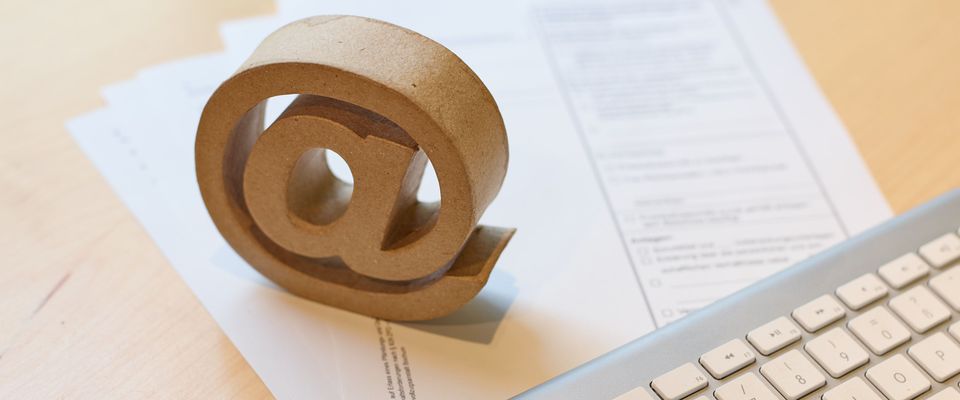Bank details
The option to transfer money to inmates is available.
If you want to transfer money to the correctional facility, please note that the following information is absolutely necessary in order for the money to be received by the correct recipient:
- Name and first name of the recipient
- Reason for payment
- Book number of the recipient
The account of the correctional facility is kept at Postbank Dortmund.
- IBAN: DE07440100460050746469
- BIC: PBNKDEFF
Visiting hours
Visitation regulation at the Castrop-Rauxel Correctional Facility
Inmates are allowed to receive visitors during their non-working hours without special approval. To guarantee as just and even a distribution of the spatial and personnel limited capacities as possible as well as the proper implementation of the visits, the following rules apply:
Visiting hours:
- Monday - Friday: 4:30 PM - 8:00 PM
- Saturday: 10:00 AM - 8:00 PM
- Sunday and holiday: 10:00 AM - 6:00 PM
Note for visitors with physical impairments:
All of our visitor rooms are on the ground floor. So, individuals with walking impediments can also visit their relatives. In addition, a handicapped accessible bathroom is available to the visitors. Due to the wide entries wheelchair users and persons with strollers also have easy access to the visitor rooms.
Who can visit inmates?
All visitors must identify themselves with a valid federal identity card or passport. This does not apply to children and youth under the age of 16 years when accompanied by an adult.
The person on duty can exclude visitors completely or temporarily from a visit for current cause (for example, in case of disruptions during the processing of the visit, violations against regulations, being under the influence of alcohol or drugs etc.) If this is the case, a corresponding message will be forwarded to Dept. 11 (Security).
When can a visit take place?
Inmates, who are not authorised for relaxation:
- receive 2 x 2 hours of visitation per week (of which 1 x 2 hours are on weekdays and 1 x 2 hours on the weekend)
Inmates, who are authorised for relaxation:
- receive 2 x 2 hours of visitation per month (of which 1 x 2 hours are on weekdays and 1 x 2 hours on the weekend)
- Additionally: 5 hours of visiting leave per week -on weekends or on holidays-
Excluded from this allocation are:
- all officially scheduled visits (for example: visits by representatives of the police, probationary services, bailiffs or immigration authorities as well as visits by legal/court appointed guardians pp.)
- discussions with the participation of prison staff
- attorneys-at-law (in civil matters as well)
- evaluators
- external therapists
The visitation time per visit is a maximum of two hours and can be limited in individual cases in case of heavy use of the visitor rooms.
Per visit a maximum of three persons over the age of 16 years will be permitted. Children and youth under 16 years old are insofar not counted, but must be accompanied by adults.
What can be handed over during a visit?
The inmate may be given food and luxury foods as well as toiletry items up to a value of EUR 40.00 per visit.
Private clothing and bed linens may also be provided or exchanged respectively to an appropriate degree.
Alcoholic beverages or other intoxicating items and substances may neither be consumed not handed over during the visit.
Exceptions and “Special Visits”
Exempt from this regulation are visits by defence counsels in criminal matters with written authorisation.
Letter and Parcel Post
Maintaining social connections is important for achieving the objective of enforcement.
This requires that the inmate is able to communicate with the outside world. In order for you to be able to maintain contact with your relatives, acquaintances etc., we have compiled the most important information here.
Parcel Post (Prisoners)
The parcel post for prisoners is regulated in Article 28 of the Penal Code of North Rhine-Westphalia (StVollzG NRW).
According to it receiving packages requires permission from the facility. Excluded from receipt are packages, which contain food and luxury foods, as well as packages, which are able to jeopardise the security and order of the facility.
For safety reasons every incoming package must be opened in the presence of the prisoner and the content checked. Excluded objects can be held for the prisoner, returned to the person who sent them or destroyed.
Letter Post (Prisoners)
The correspondence for prisoners is regulated in Articles 21 - 23, 25, 26 of the Penal Code of North Rhine-Westphalia (StVollzG NRW). Accordingly, every prisoner as a rule has the right to send and receive correspondence without restrictions. The management of the correctional facility can forbid correspondence with specific persons if
- the security and order of the facility would be jeopardised,
- there is reason to fear that contact with persons, who are not relatives of the prisoner according to Article 11 Sec. 1 No. 1 of the Criminal Code, has a damaging influence on the prisoner or impedes their integration,
- the prisoners wish to contact the victims of the prisoners’ crimes and there is reason to fear that the contact would have disadvantageous effects on the victims or jeopardised third parties or they have declined the establishment of contact.
Every piece of incoming or outgoing post is according to Article 22 Sec. 1 StVollzG NRW subjected to a visual inspection for non-permitted items, such as for example, money, sim cards or drugs. According to Article 22 Sec. 2 StVollzG NRW correspondence may as a rule be monitored for reasons of treatment or security or order. Article 26 StVollzG NRW, however, excludes some addressees or senders respectively - such as for example defence counsels, parliamentarians, petitioning agencies, the data protection officer and the prison officer. Therefore, the constitutionally protected privacy of correspondence - even if not unrestricted - also applies to prisoners.
The postage costs are born by the prisoner.


